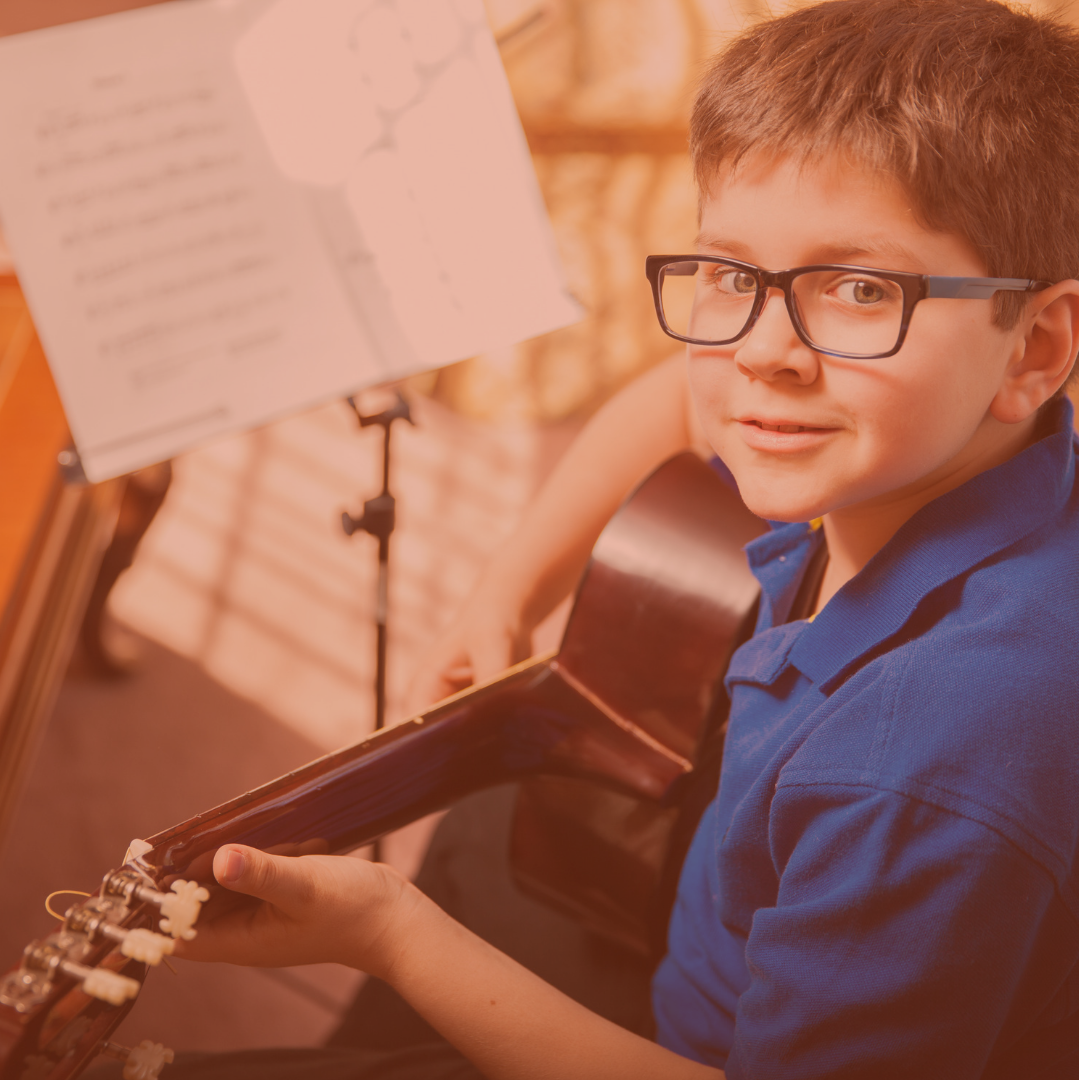
“But I’ve Never Played Music!” – Helping Your Child Practice
I often get asked, “can my child learn to play an instrument if I don’t know anything about music?” The answer is yes! You don’t have to be an expert on an instrument to help your child, that’s why they have a teacher. There are many ways you can still help your child develop good practice habits. View the tips below to help maximize your child’s practice experience.
Sit in on the lesson
By observing the lesson you get all the same information as your child does. Even if you’re not physically performing on the instrument you can often help explain or remind them what was taught in the lesson. Observing lessons can be especially helpful in the beginning when your child is still familiarizing themselves with the instrument.
Take a look at the book
Most beginning music books have very helpful instructions that go along with each song. Often times they will have specific diagrams for each song that show where to put your fingers.
Help with practice habits
You don’t have to know how to be able to play the songs on their instrument to help your child develop good practice habits. You can help them find a good time of day to practice in a quiet space, and help organize their activities to accommodate this practice time. The less variety there is in the time of day and location your child practices, the more energy can go into it. You can also help your child by reminding them to spend special attention on challenging parts of a song and organize a list of things they will work on in thier practice session (i.e warm-ups, scales, new song, etc.). For more tips on good practice habits click here.
Write down questions
If you or your child have questions throughout the week, be sure to write them down so you can clarify with your teacher. Most teachers are also available to answer questions over email or phone during the week.
Listen to CD’s of the songs
Many lesson books will provide a CD in the back where you can hear the songs, and also provide accompaniment tracks (some books have two versions, one with the CD and one without so be sure to get the one with the CD). With higher level songs you can often find recordings of them performed in professional settings. Not only does this help you familiarize yourself with how the song is supposed to sound, but will also help inspire your child when they hear it performed professionally.
Familiarize yourself with basic theory
This doesn’t mean you need to master the ins-and-outs of the instrument. Simply learning the notes on the piano, a few simple chords on the guitar or ukulele, or the basic rhythms for drums can be a huge help. Having this knowledge will help you guide your child in figuring out the music on their own.